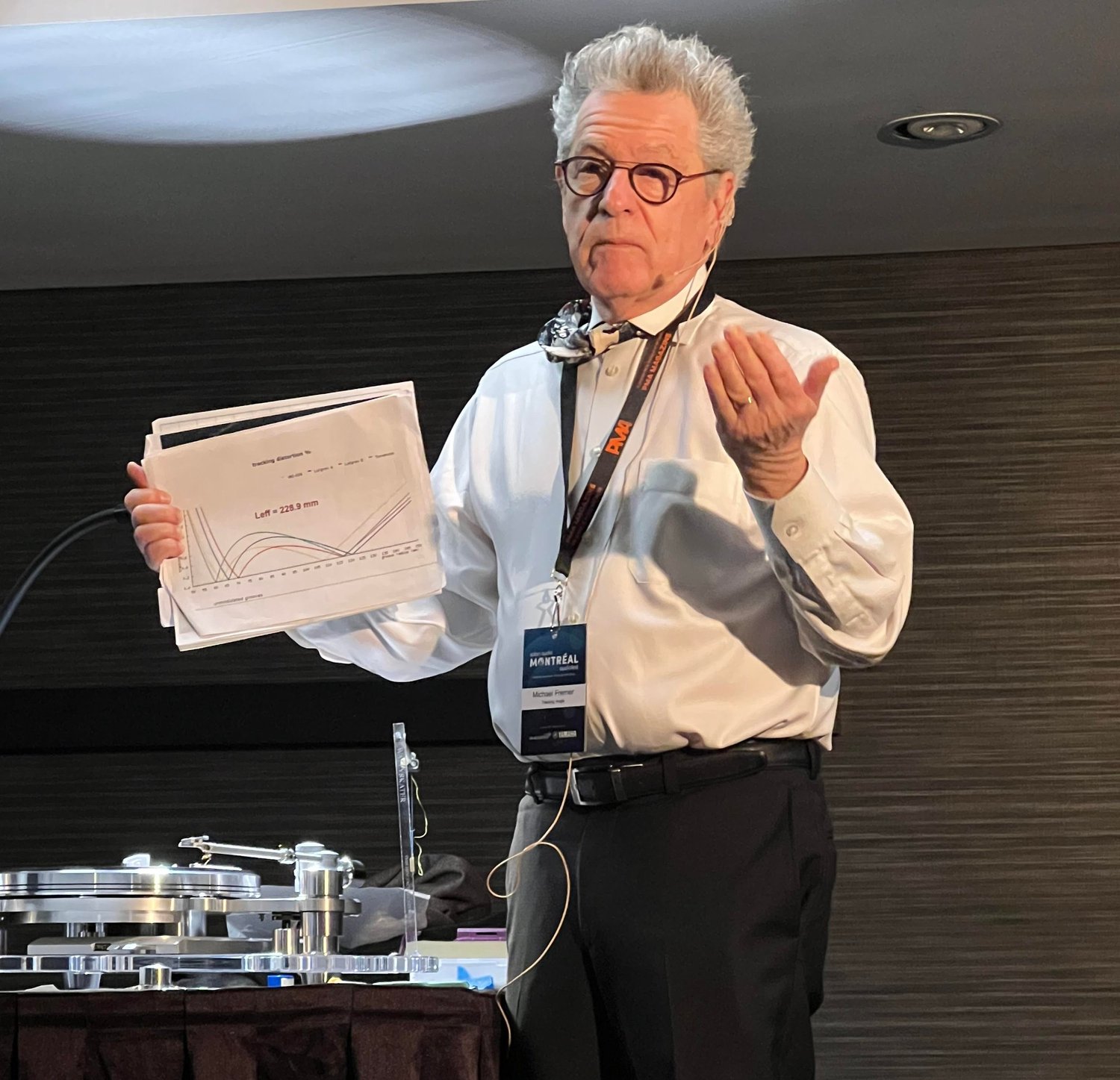
Part 1 ended with the following words from Michael: “Over the ten years I was a paid employee (at Stereophile), I continued building my brand. I built a website (analogplanet.com) from scratch. I named it, I got the writers, I did the whole thing. I built a YouTube channel. I wasn’t hired to do a YouTube channel, but I thought that’s something you have to do today. I built it up to 52,000 subscribers when Stereophile‘s YouTube channel had 3000 to 4000 subscribers. I always put in the extra effort. Always. It was good for the magazine and I felt entitled to more money. But the new owner said no, I was too expensive. So that’s what happened.”
The new owner was AVTech Media from England. “They had other hi-fi publications,” says Michael. “I thought that was good. But they came to America for the first time and told me that I lost money for them. It certainly wasn’t the best way to start a relationship. And I said, ‘You can’t monetize my value for you and you bought my contract. That’s all I want to hear about it.’ And then I spent the next couple of years trying to demonstrate that I was worth it for them, that I was valuable, that I put in the extra effort. Like coming to shows like this one (the Montreal Audiofest) that I don’t have to come to for my own benefit. I would do things for people. Store owners would ask me to come out to their store and make an appearance. I always felt it was good for the industry and the magazine. But after a decade of hard work, I wasn’t rewarded at all. I think the business model was to get cheaper people to come in and fill the slot. It was frustrating, and I couldn’t tolerate it anymore. So I walked out.
“It wasn’t an easy decision. During the last six to eight months before I left, my wife saw how the situation was eating me up and said I had to do something about it, even if it meant retiring. We had enough money to retire, and I could have sold my record collection for a significant sum, but I didn’t want to go down that route.
“So I called my ex-partners (at The Absolute Sound [TAS]), and said, ‘Listen, I want to start a website again.’ So we started building it. And this is before I was told by the other magazine, ‘We have no more money for you.’ Money is essential, and I felt that I deserved better compensation for my efforts. I took a chance and it worked out great.
“I’m now back where I began, at TAS, and I feel that they value my contributions. They’re paying me well and not concerned about me having a separate website. Recently, I reviewed a $9,000 Audio Technica cartridge on my site, and the traffic is just crazy. It’s rewarding to be appreciated for what I do.”
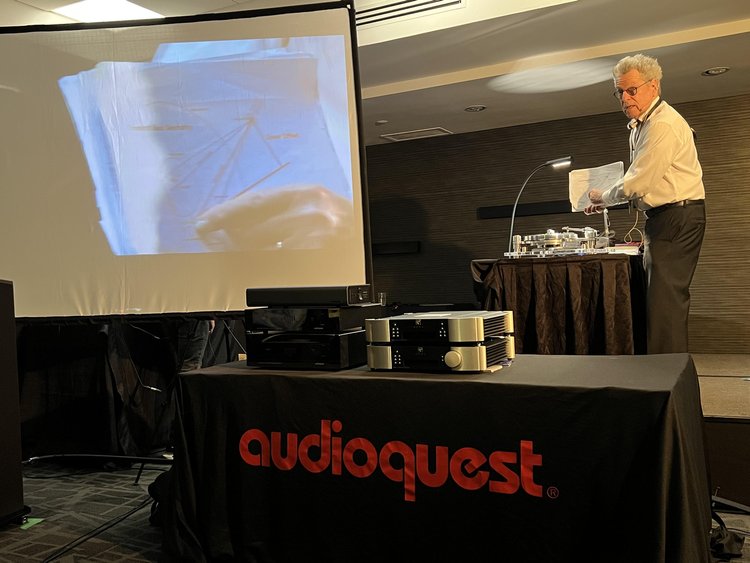
I tell him how much I enjoyed his latest video of his audio room, shot in 4K.
“Thank you!” he says. “I actually paid someone a lot of money to shoot that video, and it’s already got about 86,000 views. The one I did for Stereophile ten years ago has 800,000 views. Now you tell me what that’s worth. And I didn’t ask for that much money in a raise. I’m making much more money now than what I was asking for. It was just stupid. I went whole hog with them and quit. And it’s fine. I’m good. I wish them good luck in what they’re doing because we need two good magazines. I have no animosity at this point.
“I wasn’t sure if I could handle (the career change), but I had to try. I even shared my video with TAS, even though I paid for it. They ran it, and it has nearly 35,000 views on their YouTube channel. It’s their most-watched video. Most of my videos are their most-watched videos.
“That doesn’t surprise me,” he continues. “Nobody at the other magazine can do videos like I do. And they still got rid of me. I don’t understand what they were thinking. I’m not a prima donna. Whatever they asked me to do, I did it. I never complained until I wanted more money, which isn’t unusual.
“I’m planning to write a book,” he says. “I have so many fascinating stories, not only about this industry but about my experiences working for Walt Disney, where I supervised the production of Tron and Animal Olympics. If you’re interested, you can see Animal Olympics on Amazon Prime.”
“I also did a stint in stand-up comedy,” he says. “I even performed at Max’s Kansas City. I was the only comedian to play there twice. I have many interesting stories to share, and I hope to write them all down before I die.”
What projects was he working on now?
“My trackingangle.com website. I’ve got twelve good writers writing for me, including the ones I took from the previous site. I have my 17-year-old genius writer kid, and a retired attorney who was a fan of mine when I was on the radio in Boston. And I’ve got a guy from Oslo who’s writing for me.
“There’s a store in Oslo that asked me if I’d conduct turntable setup seminars for them. I said sure, and they asked how much I would charge. I replied that I wouldn’t charge anything, I only asked that they pay for my business class flight so I could rest on the way there, and for my hotel. It was a pretty good deal. Every seminar, we had a full house and everyone was satisfied with the experience. I then had the pleasure of meeting one of Norway’s top writers, who now writes for my website. So it’s all really good.
“I’m also producing two records, which is a new thing for me,” he says. “How that happened is I have a friend who runs piano concerts at the Clavier House in New York, which is a piano showroom with a performance space. To support him, I went with a friend to one of the concerts, and as we sat there, in walked Rufus Reed, a well-known veteran bassist who’s played with everybody, and this 20-year-old kid who sat at the piano. They looked at each other, and they started to play. After five minutes, I turned to my friend and said, ‘This is just unbelievable. Are they recording this?’. He confirmed that our friend Duke Marcos was recording it in the other room. When the performance ended, we made our way to the back and asked Duke if the recording lived up to our expectations. He said, ‘Yes, it came out great. And we even captured it on video.’ He turned to the videographer and said, ‘I want you to meet my friend Michael Fremer.’ Without missing a beat, the videographer turned to me and said, ‘WBC, 1974! I was a big fan!’
“With Rufus Reed’s permission and the kid’s enthusiasm, we’re going to put this out on vinyl. I have the best mastering engineer in the world mastering it, because he believes everyone’s going to know this kid in five years, and he wants to do the recording justice.
“And do you know who Patrick Leonard is?” Mikey asks. “He produced Leonard Cohen and Madonna. Out of the blue, he called me about a project he’s working on, and I’m helping him see it through on vinyl. These are all exciting things. I’ve got a lot of irons in the fire.”
Was he surprised by vinyl’s popularity?
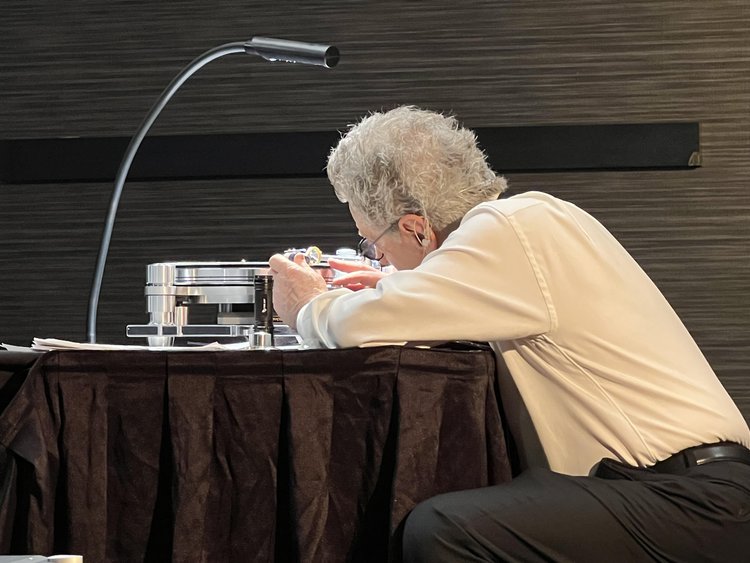
“I never expected this to happen,” he says. “In my wildest imaginings, I thought vinyl would stabilize. I expected that some new releases and reissues would come out, and that some presses would stay open. But I never imagined it would take off like this. I used to sit with Joe Harley, the Tone Poet producer for Blue Note, when he was with AudioQuest—this was in the CD days, before streaming—and we would say that if kids could hear records and see what a record store was like and pick through the bins and that whole thing, they would want that. Maybe not as much as whatever else, but they’d have a small record collection they could see on the wall. But what’s happened is bigger than what we imagined. Young people get it and love it.”
What does he think about the general sound quality of contemporary LPs?
“It depends on the record,” he says. “But the record business always does this. They ruin things by cheapening them. They kill the goose that laid the golden eggs. For many years, it was horrible. But it’s come back. There are a lot of good engineers today who get it. Billie Eilish’s records sound great on vinyl. Taylor Swift’s sound pretty good. And there’s more dynamics on a record than on the digital versions. But there are a lot of bad-sounding records, too. It’s a mixed bag. Even in the 50s and 60s, many records sounded terrible.”
Speaking of bad-sounding records, I mentioned how in the late ‘70s and early ‘80s record companies would recycle vinyl records that resulted in pieces of the labels being embedded in the vinyl.
“Yes, there was a PVC shortage in the ‘70s due to one war or another, including the one in the Middle East.”
What does he think of people who dismiss vinyl because of its “ticks and pops”?
“They’re silly. Do I like ticks and pops? Of course not. My records hardly have any. It’s all about taking care of them. Food will spoil if you don’t preserve it. It’s the same with LPs. Take care of them and they will last a long time. In fact, I’m doing an event in a couple of weeks that’s being organized by a guy named Mark Finer, who used to work for Sony. When the compact disc came out, he was the point man. I was his nemesis. I would go to these events and scream and yell at him. And now he’s helping the vinyl community. It’s so great.
“The event we’re doing will be on the care and preservation of vinyl because nobody’s done it for young people. They don’t know how to take a record out of a jacket. They don’t know how to clean it. We’re trying to get the record store owners and the people who make cleaning machines involved. It’s going to be a webinar thing in April. I’ll even show the first 78, 45, and LP I ever bought.
“I have a lot of young friends,” he continues. “Which is easy to have when you’re the oldest person around. I have a friend in his 40s who’s married with kids. I’d fixed his turntable, and he invited me over to his place in Brooklyn. When I entered his living room, it felt like I was transported back to my own living room in the ‘70s. There was no TV; it was in another room. Instead, there was a wall of records, a nice tube amplifier, big speakers, and a turntable—and no CD player. We sat and played records, ate, and smoked a joint, which is now legal, thank God. It was fantastic, and my friend, who is a teacher, does it because this is a great experience.
“I once did an event at Definitive Audio in Seattle for Microsoft people. The store owner told me that one of his customers was a big fan of mine and would be honoured if I checked his turntable to make sure it was okay. So I drove to the guy’s house and he told me his story:
“One day, he got a stereo, but his wife wouldn’t let him put the speakers in the room. So they were built into the wall and it was an all-digital Meridian system. Then he read some of my articles and got a little turntable, which he put on a shelf. His kids came home from school and instead of playing video games, they wanted to hear records. They loved it so much that the man’s wife finally agreed to have speakers in the living room.
“When I visited him again, he had a pair of big Wilson speakers in the living room. And he had a record rack in the middle of the room, which allowed you to browse records vertically. He told me, ‘My wife loves it. I love it. She loves the fact that the kids come home from school and want to hear records. It’s become a family activity.’
“You tell me,” Mikey says with a mischievous gleam in his eyes. “Can streaming do that?”
Read Part 3 here.
2023 PMA Media. All rights reserved.



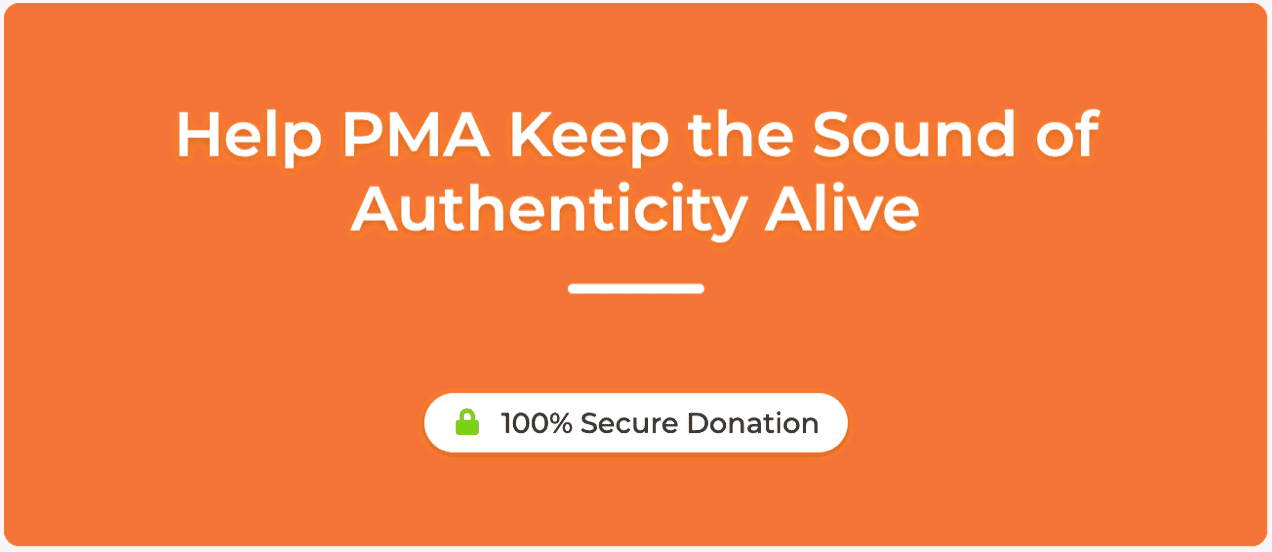
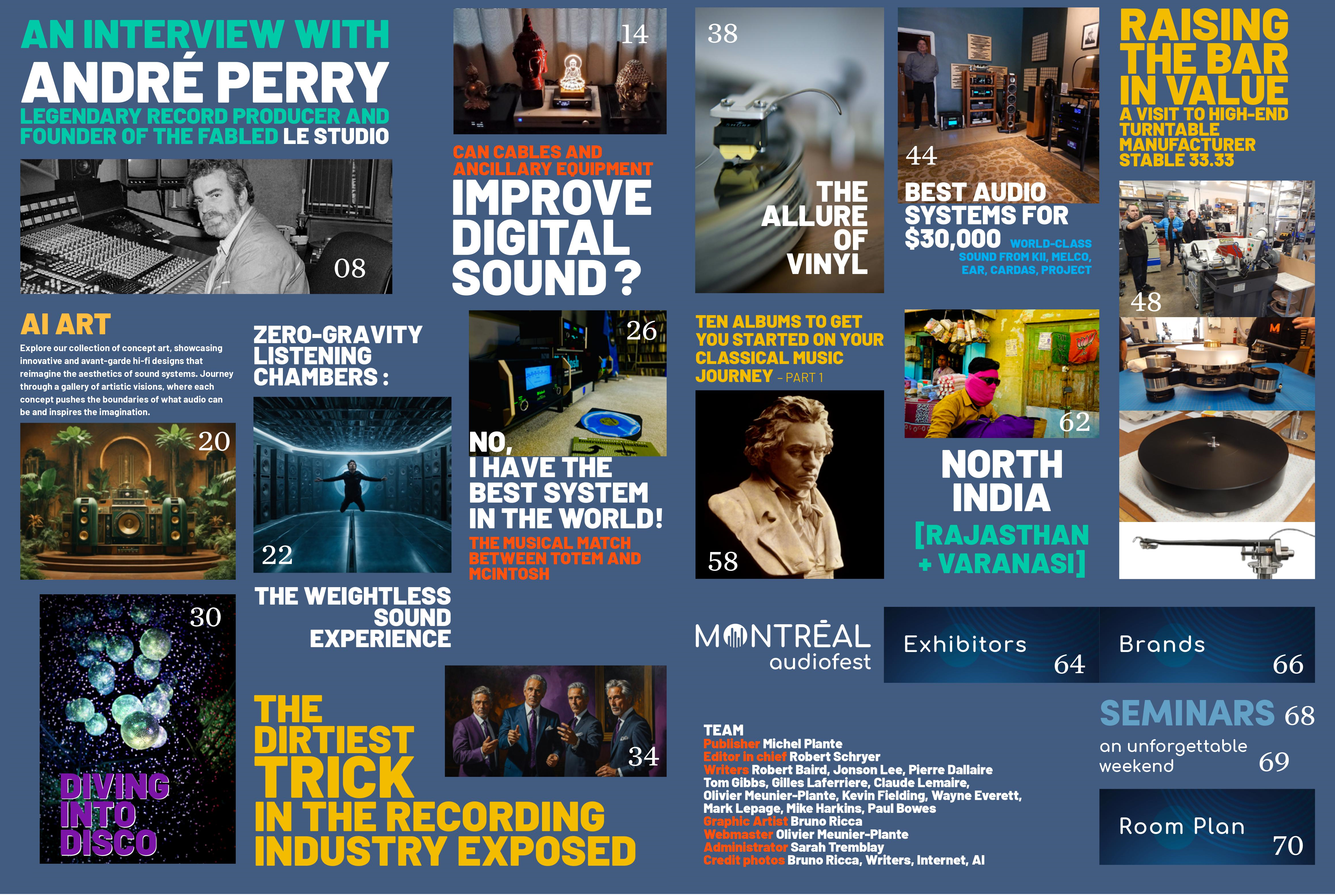
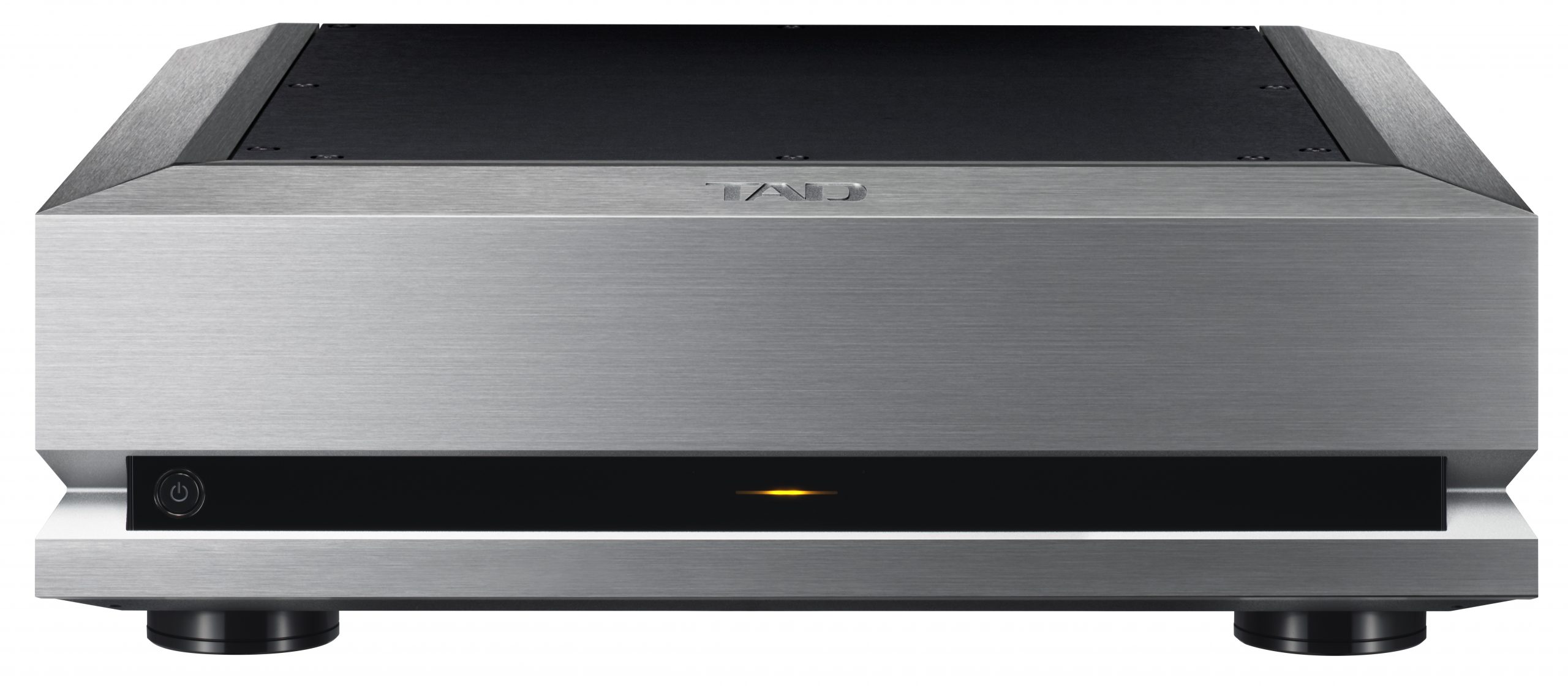




Leave a Reply